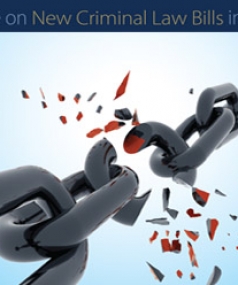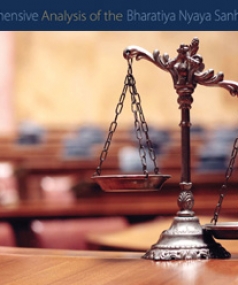Evolution and Provisions of the Bharatiya Sakshya Adhiniyam (BSA), 2023
The Bharatiya Sakshya Adhiniyam (BSA), 2023, represents a significant legislative milestone in India's legal framework, updating and modernizing the Indian Evidence Act (IEA) of 1872. While retaining the core principles of the IEA, the BSA introduces crucial changes to address the evolving landscape of digital evidence and the complexities of contemporary legal proceedings. This article explores the provisions retained from the IEA, key changes introduced in the BSA, and the steps needed to ensure its effective implementation.
Retained Provisions from the IEA
Admissible Evidence
The BSA, like the IEA, stipulates that only admissible evidence can be presented in legal proceedings. Admissible evidence includes ‘facts in issue’ and ‘relevant facts.’ Facts in issue are those that determine the existence, nature, or extent of any right, liability, or disability claimed or denied in a legal proceeding. Relevant facts are those pertinent to a given case, encompassing both documentary and oral evidence.
Proven Fact
A fact is considered proven if, based on the evidence presented, the court believes it to exist or its existence is so likely that a prudent person would act as if it exists under the circumstances.
Police Confessions
Confessions made to police officers or in police custody remain inadmissible unless recorded by a Magistrate. However, information leading to the discovery of a fact, obtained from an accused in custody, may be admitted if it distinctly relates to the fact discovered.
Key Changes
Documentary Evidence
The BSA expands the definition of documents to include electronic records, acknowledging the pervasive role of digital data. Documentary evidence now includes primary evidence (original documents and electronic records) and secondary evidence (documents and oral accounts proving the contents of the original). Secondary evidence is broadened to encompass oral and written admissions and testimony from individuals skilled in examining the documents.
Oral Evidence
Oral evidence can now be given electronically, allowing witnesses, accused persons, and victims to testify through digital means. This change enhances accessibility and efficiency in legal proceedings.
Admissibility of Electronic or Digital Records
The BSA recognizes information in electronic records stored in various digital media as admissible documentary evidence. This includes data processed by different computers, reflecting the interconnected nature of modern digital information.
To Read more on Evolution and Provisions of the Bharatiya Sakshya Adhiniyam (BSA), 2023 click here
 English
English
 عربي
عربي Русский
Русский 官话
官话 português
português
 Türk
Türk 




_.jpg&w=238&h=285&zc=1)


